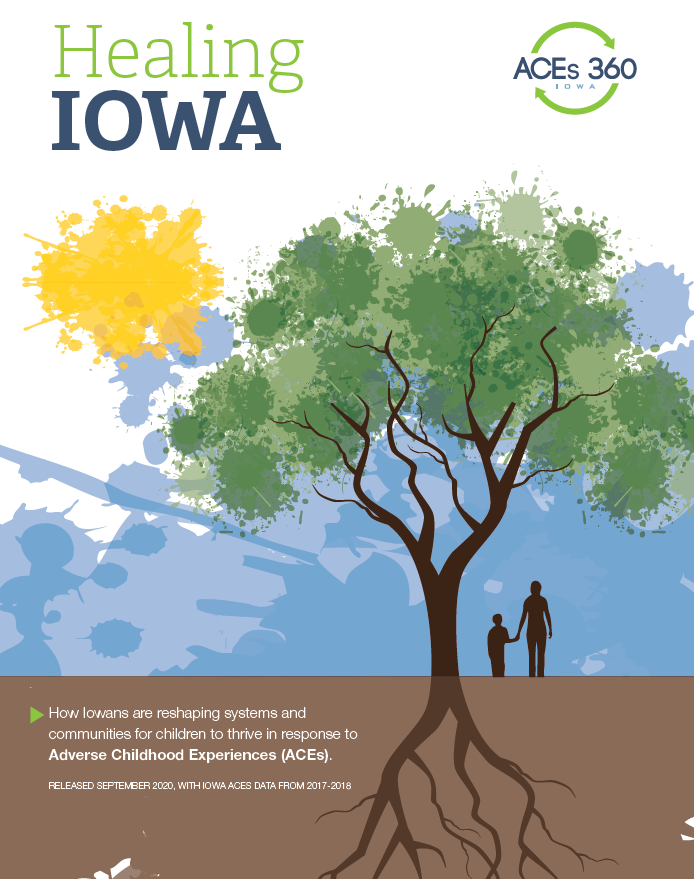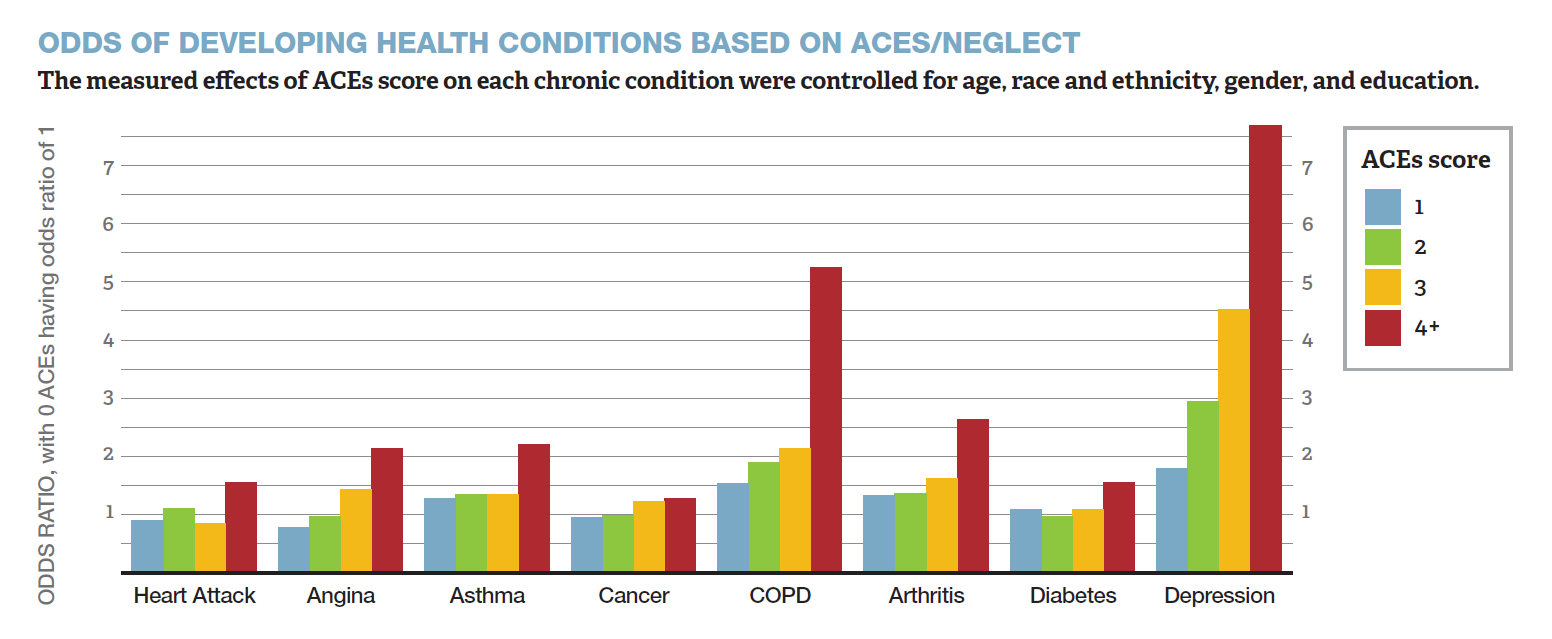ACEs in Iowa
How a child develops is the foundation for a prosperous community.
Starting even before birth, a child’s brain is constructed through an ongoing process that continues into adulthood. But many children experience stress early on that can become toxic without adult support. Over time, this level of stress can impact behaviors and lead to poor health, learning, and social outcomes.
Adverse Childhood Experiences (ACEs) are traumatic events that can dramatically upset a child's sense of safety and well-being.
While ACEs can affect future well-being, they don't have to. Emerging research shows that positive childhood experiences stemming from caring relationships and connections in the community reduce the impact ACEs can have. Using intentional strategies, we can build the environments that foster healthy development, as well as create system change that leads to an equitable community.
Adverse Childhood Experiences (ACEs) are traumatic events that can dramatically upset a child's sense of safety and well-being.
While ACEs can affect future well-being, they don't have to. Emerging research shows that positive childhood experiences stemming from caring relationships and connections in the community reduce the impact ACEs can have. Using intentional strategies, we can build the environments that foster healthy development, as well as create system change that leads to an equitable community.


